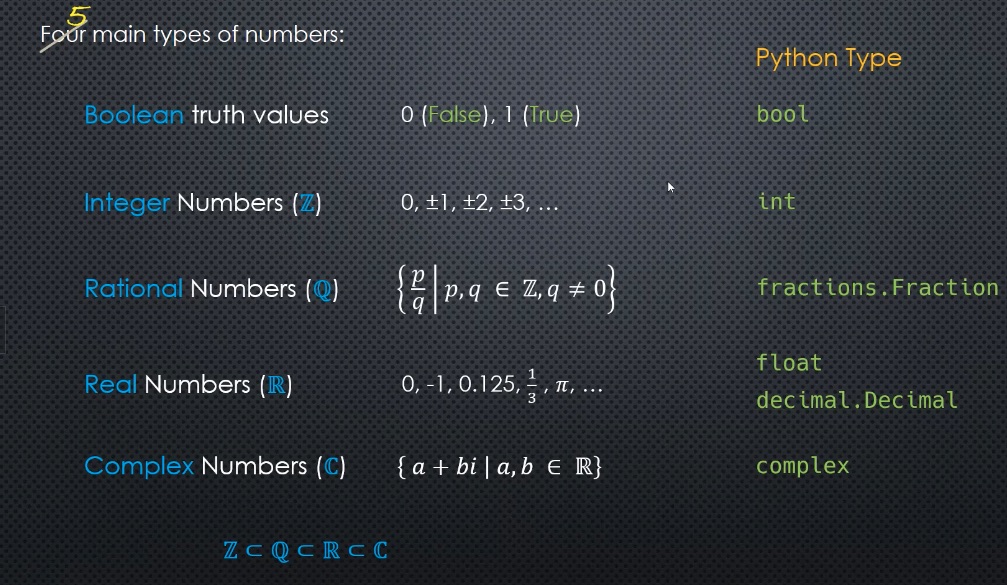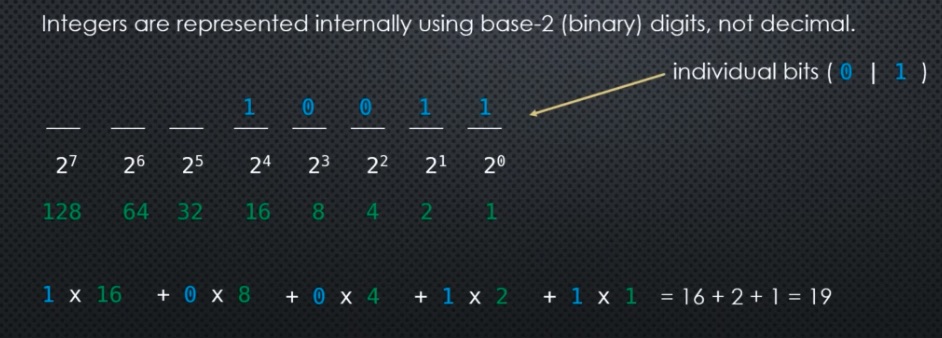Numeric datatypes
5 types of numbers in Python¶

Integers in Python¶
Integers are represented in binary form internally. For example, to represent a number like 19, the binary form is 10011, which takes 5 bits.

Thus, what is the largest unsigned integer that can be stored with 8 bits? The answer is 255.

If we want signed integers, then 1 bit is used to represent the sign, leaving $2^{7}$ . Thus the range is now [-127, 127]
In [17]:
Copied!
import math
for i in [8, 16, 32, 64, 128]:
val = math.pow(2, i-1)
print(f'Int range : {i} bits \t: [-{val:,.0f} to {val:,.0f}]')
import math
for i in [8, 16, 32, 64, 128]:
val = math.pow(2, i-1)
print(f'Int range : {i} bits \t: [-{val:,.0f} to {val:,.0f}]')
Int range : 8 bits : [-128 to 128] Int range : 16 bits : [-32,768 to 32,768] Int range : 32 bits : [-2,147,483,648 to 2,147,483,648] Int range : 64 bits : [-9,223,372,036,854,775,808 to 9,223,372,036,854,775,808] Int range : 128 bits : [-170,141,183,460,469,231,731,687,303,715,884,105,728 to 170,141,183,460,469,231,731,687,303,715,884,105,728]
Integers in Python use variable number of bits depending on the size of the value stored in it. Thus, the largest number that can be stored is limited by the amount of memory available to the kernel.
In [18]:
Copied!
import sys
print(sys.getsizeof(0)) # integer that uses the smallest size
print(sys.getsizeof(10))
print(sys.getsizeof(1000))
print(sys.getsizeof(2**1000)) # exponentially large number
print(sys.getsizeof(2**1000000))
import sys
print(sys.getsizeof(0)) # integer that uses the smallest size
print(sys.getsizeof(10))
print(sys.getsizeof(1000))
print(sys.getsizeof(2**1000)) # exponentially large number
print(sys.getsizeof(2**1000000))
24 28 28 160 133360
In [ ]:
Copied!